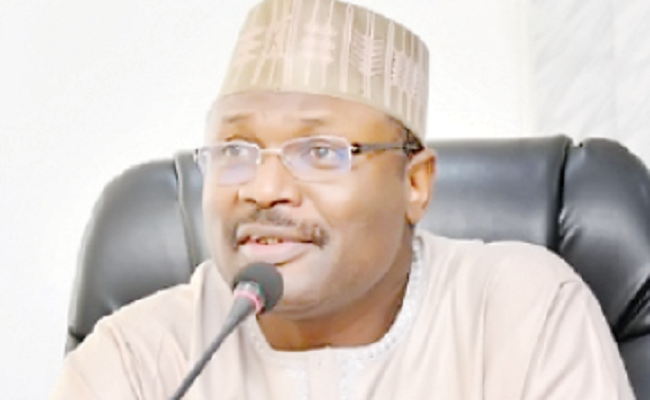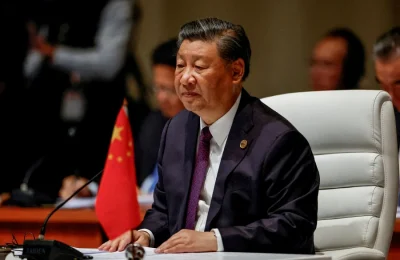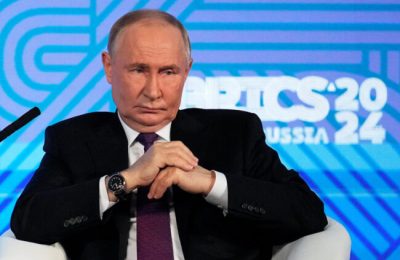As ripples over the conduct of the general election subsist, TAIWO AMODU writes on the issues and factors that have thrown up most of the major controversies.
There were high public expectations about the 2023 general elections in the country. This was due to a number of factors, one of which was the perception by the international community of Nigeria as the largest democracy in African continent. Moreover, chairman of the Independent National electoral Commission (INEC), Professor Mahmood Yakubu said that conducting a single election in Nigeria was equivalent to 14 of the countries in the West Africa combined due to the logistics demands and voting population. And for the just-concluded elections, INEC had a whopping N30 billion to prepare and conduct the polls with more than 83 million Nigerians registered for the exercise.
The public enthusiasm and hope was further rekindled by the innovations introduced by INEC, especially modern technology designed to raise the bar preparatory to the elections. For umpteenth time, the commission assured of the innovations ushering a paradigm shift in the history of elections in the country; that elections will stop being a nightmare for Nigerians. Past elections had been characterized by electoral irregularities, fraud and other forms of impunity.

Today, this year’s elections that commenced with the presidential and national Assembly poll on February 25 and culminated into the governorship and state Houses of Assembly on March 18 having been shifted by one week, appear to have been won and lost by contending forces in the polity. Interestingly, applause, condemnation and acerbic comments have trailed the performance of INEC, depending on the political divides.
In league with the main opposition party, the Peoples Democratic Party (PDP) to condemn the performance of INEC the Civil Society Organisations (CSOs) and the election monitoring groups, both local and international. It is interesting to note that they did not also spare political parties and candidates whose actions fell short of expectations and were viewed as real threats to the democratic process.
BVAS, IReV conundrum:
Before the election and following the passage of the Electoral Act Amendment Bill 2022 into law, expectations were high that the introduction of technology would serve as game changer in the electoral process by promoting transparency. The commission had introduced the Bimodal Voters Accreditation System (BVAS) and the results viewing Portal IReV, for transfer of results from polling units to a portal that could easily be accessed by voters and Nigerians at large.

BVAS is a technological device used to identify and accredit voters’ fingerprints and facial recognition before voting. The device is also used for capturing images of the polling unit result sheet (Form EC8A) and uploading the image of the result sheet online. IReV on the other hand is an online portal where polling unit level results are uploaded directly from the polling unit, transmitted, and published for the public. At the front end of the online portal, members of the public can create personal accounts with which they can gain access to all uploaded results stored as PDF files.
IReV was first introduced in 2020 when a bye election was conducted in Nasarawa State. Before the general elections, BVAS had been used in the Ekiti and Osun states governorship elections with reassuring success. The commission also conducted mock accreditation in designated polling units, using the technology. Stakeholders were convinced that both BVAS and IReV will address the weaknesses already identified in the management of the electoral process in the country to include; falsification of votes at polling units, falsification of number of accredited voters, collation of false results, mutilation of results and computational errors, swapping of results sheets, forging of results sheets, snatching and destruction of results sheets, obtaining declaration and return involuntarily, making declaration and return while result collation is still in progress and poor record keeping.
ICC Collation room as battle ground
According to the dominant opposition parties, it turned out to be an anti-climax as the performance of the two technological innovations fell short of expectations. There were allegations that contrary to provisions of the Electoral Act, results of polling units where BVAS was allegedly bypassed were upheld. Senator Dino Melaye, polling agent of the PDP presidential candidate, Alhaji Atiku Abubakar, had raised concern over the malfunctioning of the IReV at the International Conference Centre, (ICC) the INEC Collation Centre in Abuja. Citing provisions of the Electoral Act, Senator Melaye asked the INEC chairman and Chief Returning Officer for the 2023 presidential elections, Professor Yakubu, to explain to Nigerians why results of the elections were not being uploaded on the commission portal. He said: “As I speak to you, results were not uploaded on your portal. If results weren’t uploaded, we are going to contest it here because if we had access to your IReV, we won’t be contesting it here.” The agents of certain opposition parties also spoke in a similar vein.
Nigerians anxious to access the INEC portal were disappointed that contrary to their expectations, they could not view results of elections. As they waited with bated breath, INEC, through a statement, admitted that its Results Viewing Portal (IReV) has not met expectations of Nigerians anxious to view results. Festus Okoye, National Commissioner and Chairman, Information and Voter Education Committee said INEC had received reports that the IReV had been relatively slow and unsteady. He attributed the challenge to technical hitches related to scaling up the IReV from a platform for managing off-season, State elections, to one for managing nationwide general elections. “It is indeed not unusual for glitches to occur and be corrected in such situations,” he noted. Okoye assured Nigerians that the challenges were not due to any intrusion or sabotage of its systems, and that the IReV remains well-secured. His statement further read: “Our technical team is working assiduously to solve all the outstanding problems, and users of the IReV would have noticed improvements since last night. We also wish to assure Nigerians that results from the polling units, copies of which were issued to political parties, are safe on both the BVAS and the IReV portal. These results cannot be tampered with and any discrepancy between them and the physical results used in collation will be thoroughly investigated and remediated, in line with Section 65 of the Electoral Act 2022.
We take full responsibility for the problems and regret the distress that they have caused the candidates, political parties and the electorate.”
At a meeting with his Resident Electoral Commissioners a week after the presidential and National Assembly elections, Yakubu had admitted glitches and assured that his commission would address the challenges before conduct of the governorship and National Assembly elections. He said: “The deployment of BVAS has gone a long way to sanitise voter accreditation as can be seen from the result of recent elections. Since last week, the commission has intensified the review of the technology to ensure that glitches experienced, particularly with the upload of results are rectified. We are confident that going forward the system will run optimally.” Local and international observers groups have admitted to improvement in the performance of BVAS and IReV during the governorship and State Assembly elections.
Vote buyers syndrome
In spite of assurance by law enforcement agents and the anti- corruption agency, the Economic and Financial Crimes Commission and the Independent Corrupt Practices and other related offences Commission, (ICPC), voters inducement persisted. Both the Economic and Finacial Crimes Commission (EFCC) and the ICPC arrested several suspects, who engaged in voter inducement during the elections. According to the agencies, 69 persons were arrested for voter inducement during the last weekend governorship and state assembly elections.
Foreign observers
Reports by the European Union (EU) have been instructive. In a report, the team noted that due to malpractices, intimidation, killings and the performance of INEC that fell short of public expectations, Nigerians are beginning to lose confidence in the ballot. The EU maintained that it observed voter apathy in the conduct of governorship election and State Assembly. In its wake up call on INEC and political actors, Barry Andrews, the Chief Observer, EU Election Observation Mission, in his preliminary statement of the EU EOM on the governorship and Houses of Assembly elections on Monday, said Nigerians hungered for democracy and were ready to be involved in the country’s democracy, but the appetite was lost due to failures by political elites and INEC.
He said: “Throughout the mission, we saw that Nigerians have a great appetite for democracy and are keen to engage in various civic activities. However, in many parts of the country, their expectations were not met. Many were disappointed and we witnessed voter apathy that is, in part, a clear consequence of failures by political elites and, unfortunately, also by INEC. Public confidence and trust in INEC were severely damaged on 25 February due to lack of transparency and operational failures in the conduct of the federal level polls. Up until the postponement, INEC continued to abstain from providing information, limiting its communication to a few press releases and ceremonial statements and hence failing to address public grievances and rebuild confidence in the electoral process. Positively, INEC introduced some corrective measures ahead of Saturday’s polls, allowing a timely delivery of sensitive materials and improved use of election technologies, yet the institution continued to lack transparency.”
The EU mission, however, acknowledged improvement in the performance of BVAS as against the public outcry it generated last February. Andrews, however, noted that despite these tremendous improvements, “polling on election day was disrupted by multiple incidents of thuggery and intimidation of voters, polling officials, observers, and journalists.”
Section 65 of the Electoral Act: Will Yakubu’s INEC reverse itself?
The polling agents of presidential candidates, who squealed against perceived breaches of the Electoral Act by INEC, had premised their demand that Yakubu reviewed the results of elections submitted to him by returning officers from various states on provisions of the Electoral Act which vests him with the powers to do so. National Secretary of the Labour Party, Umar Farooq Ibrahim and Senator Dino Melaye of the PDP, cited copiously, Section 65 of the Electoral Act. Checks revealed that section 65(c) as signed into law by President Muhammadu Buhari last year, states that, “declaration of scores of candidates and the return of a candidate, provided that the Commission shall have the power within seven days to review the declaration and return where the Commission determines that the said declaration and return was not made voluntarily or was made contrary to the provisions of the law, regulations and guidelines, and manual for the election.” And Yakubu, had assured the aggrieved political parties that he would look into their grievances and set aside results already declared, if the commission discovered that provisions of the Electoral Act and other statutes guiding conduct of the elections were breached.
Will he walk his talk?
Last January, a legal icon, Chief Wole Olanipekun had raised concern over the provisions of Section 65 which he noted was a threat to the sanctity of the ballot. He said: “To me is a very dangerous section, so novel in the sense that, here you have a section that empowers a returning officer after returning to review his decision within a period of seven days. The returning officer is not a court of law, not a tribunal, not vested with jurisdiction to exercise quasi-decision or to assume jurisdiction over any matter that is judicial in nature. When you now invest in a returning officer of INEC, the power to do and undo, the power to return and review his decision is dangerous to the polity. The Chief Returning Officer, is the Chairman of INEC, meaning you can return someone as President today, and tomorrow, when there are agitations here and there, he may withdraw his decision, saying: “I am revising myself and am now returning somebody else.” Olanipekun said he was so surprised that the nation parliament did not expunge that section before submitting the amended electoral act to President Buhari to append his signature.
With the main elections proper conducted, the aftermaths are likely to further stir the polity. This is because of the rash of anger, protest and indignation being expressed by some candidates and their parties, while others are excited by the results having been declared winners by INEC. According to some observers, the attendant harvests of litigation from the election could subsist beyond the May 29, 2023 date for the formal change of guard in the corridors of power. The suspense prevalent among the major stakeholders and interest in the elections might not ebb soonest.







